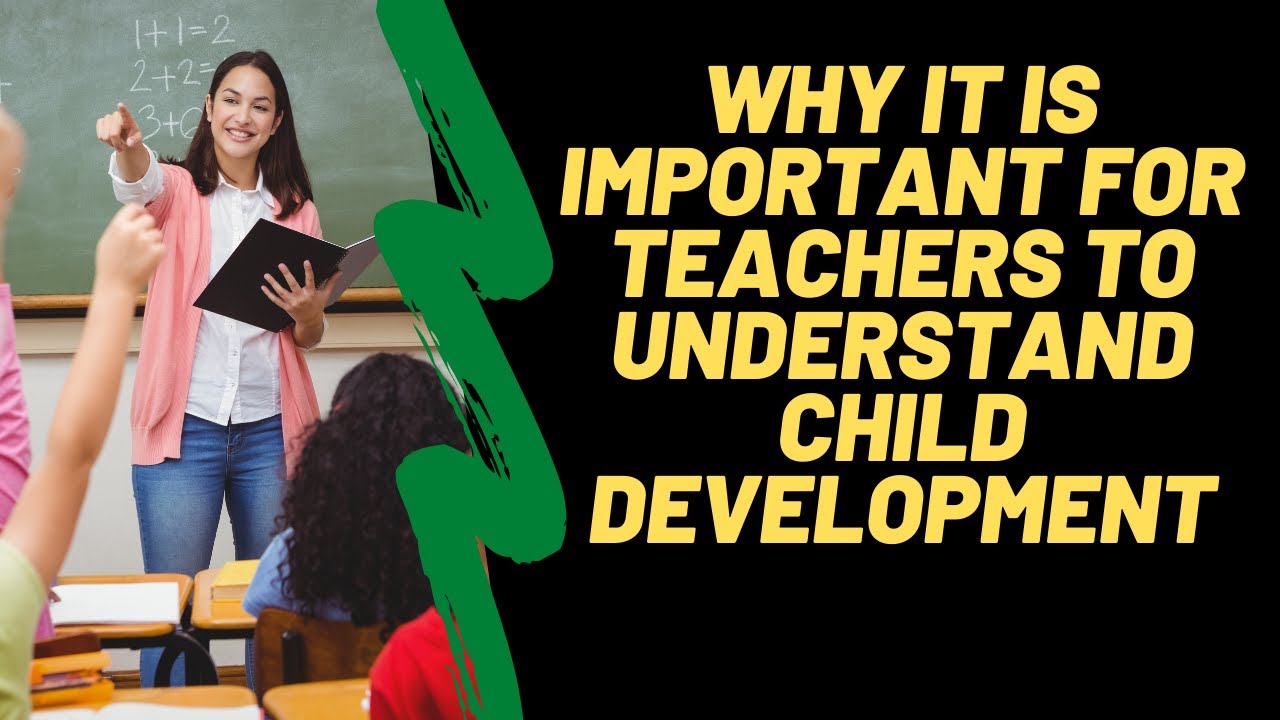Early childhood is defined as the time between a child’s birth and the age of eight. Early childhood education, on the other hand, often refers to the training of children between the ages of infancy and kindergarten. These are some of a child’s most formative years. It is around this time that individuals initially learn how to engage with people. It is at this point that they begin to form emotional bonds. It is also the time when children begin to acquire interests, which they frequently carry with them throughout their lives.
Child Development Programme is important for Teachers
Early childhood educators form the foundation of learning for children. They assist to establish the groundwork for a child’s future education and exploration. According to research, children who do not receive early education are more likely to fall behind in their academic careers. Believe it or not, most youngsters learn a comprehensive set of life skills before the age of five.
Young children are able to do so because of early childhood educators. Children acquire skills in socialising, communication, critical thinking, attention, self-control, and self-motivation during their early academic years, which are all important for success in school and in life. Teachers are responsible for making a child’s future brighter. There are courses for teachers which help them to grow and learn about child development.
If you’ve spent time with children, you know they’re incredible learners. They seem to be developing new abilities and language at a fast pace. Young children obtain data and learn in multiple ways at the same time. A toddler, for example, is developing speech, analysing social signals, and learning emotional expression while gaining key physical abilities and coordination. It’s amazing how much their little minds can process at once. This is only one of the many reasons why early childhood education is so critical.
Doctors, teachers, and other professionals who work with children keep an eye out for significant changes as they grow. Even if you’ve done your homework on early child development, keeping track of critical milestones can be difficult.
- Child development knowledge is the first of three categories of knowledge required by the teachers in their work with children. The other two are knowledge about individual children and knowledge of the child’s family, community, and culture. When planning activities and surroundings for children of a given age, knowing what is usual at that age is the greatest place to start. Plans based on typical child growth and learning satisfy the requirements of the majority of children, but the teacher makes adjustments to accommodate specific children who are ahead or behind.
- When a teacher enrols a new child, there is very little that is known about the child this is the ideal place to start. Until the teacher can see and assess the kid, it’s best to assume the child will benefit from activities and places designed for typically developing youngsters.
- Understanding the path of learning or developing skills in any area helps teachers create reachable, appropriate learning objectives for children. It also aids teachers in activity planning, experiences that push children just enough to keep them moving forward without aggravating them with a challenge that is too difficult for them.
- Many child development programmes must base their curriculum and practises on early childhood learning and development standards or recommendations.
- Standards may be a great source of developmental progressions and milestones for many aspects of a child’s development. When teachers are asked to “align to state standards,” it simply means that the experiences, activities, and environments they create are based on what is known about average child development.
- The information about how most children develop and learn has been gained by numerous professional observers (i.e., researchers) who have seen many children is the cornerstone of high-quality care and education. Teachers that constantly broaden their knowledge on child development and learning and utilise that information when planning and making choices in their programme can feel confident in their work. When they explain their judgments and procedures to parents and co-workers, they have a solid base that goes beyond personal opinion or sentiments.
- Child development programmes provide teachers with all the knowledge they might need in dealing with children of different ages. Small children also require different care and it is not easy for us to understand, only professionals can easily understand it.
- Teacher training programmes will assist teachers to deal with children of different ages. Children from different ages require different care. All of these things are taught to teachers in their training programmes.
- There is substantial evidence that children learn more throughout their first six years of life than at any other time in their lives. The learning rate drops beyond the first six years. You are building the groundwork for a child’s future learning and achievement in school, as well as their whole life. The brain develops the most throughout the first six years of a child’s life. That is why children can learn so many languages at once, but adults struggle considerably more.
In the above post, we have discussed a number of points that indicates why child development courses are important for teachers. Children and teachers both are a crucial part of our life. Without teachers, we can’t imagine the shaping of our kid’s future. Teachers are the only ones to guide them to achieve great success in the future. It is not only teachers who teach, but they themselves also to learn a lot of things and child development is one of them. A teacher training programme is necessary for teachers to help them understand how to treat children. With the help of appropriate teacher training sessions, teachers can enhance their skills and make path for the bright future of the children. So, it is important for teachers to join child development programmes.
